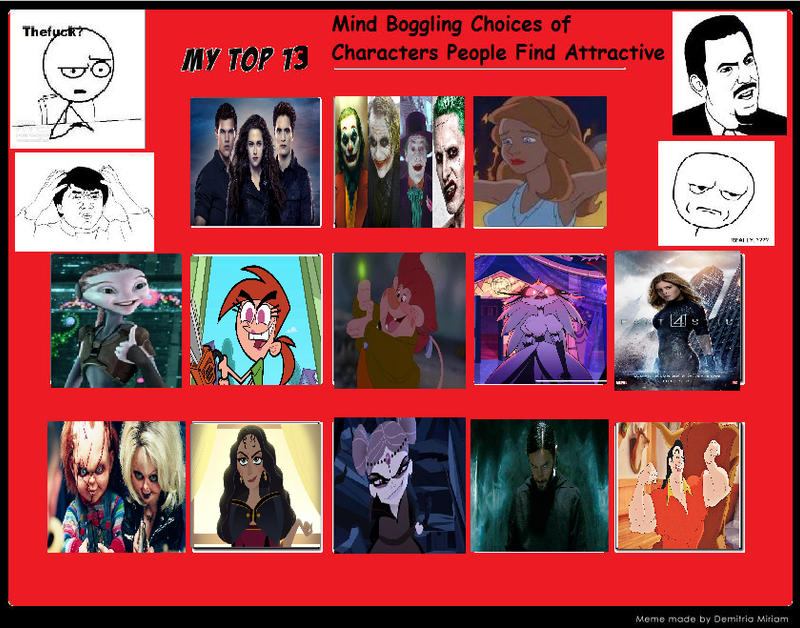Attraction often seems paradoxical. Many individuals find themselves perplexed by the question: “Why do I attract people when I don’t feel attractive?” This complexity is rooted in the intricate interplay between personal perception, social dynamics, and psychological phenomena. Understanding this interplay can shed light on the subtleties of human attraction beyond mere physical appearance.
Firstly, it is essential to recognize that attraction is not solely predicated on physical aesthetics. While societal standards may emphasize traditional beauty, personal charisma and emotional resonance play significant roles. Confidence, for instance, can greatly amplify one’s attractiveness. Even if an individual struggles with self-image, moments of self-assurance—when they truly embody their authentic selves—can illuminate their inherent appeal.
Another pivotal element is the notion of energy or presence. Humans are inherently receptive to energy emitted by others. When an individual feels comfortable or passionate about a subject, their enthusiasm becomes conspicuous. Such moments can yield an inexplicable attraction, drawing others towards them. This energetic magnetism often eclipses superficial considerations, inviting others to engage on a deeper level.
Moreover, there exists a psychological phenomenon known as the “halo effect.” This cognitive bias occurs when an individual’s overall impressions influence the assessment of their specific traits. For example, a person may not perceive themselves as attractive, but their kindness or intelligence can cast a favorable light on their overall demeanor. Consequently, others might find them alluring, even if they themselves do not recognize that quality.
A comprehensive understanding also encompasses the concept of relativity in attraction. Different contexts can shift perceptions significantly. For instance, an individual may feel out of place in a formal gathering but shine in casual company. Social environments mold expectations and perceptions of attractiveness, often skewing one’s self-assessment. When the pressure of expectations dissipates, it may allow individuals to embrace their unique attributes, leading to sincere connections.
Interpersonal dynamics further complicate the narrative. Attraction is frequently reciprocal. An individual’s sense of desirability can fluctuate based on how others perceive them. People are inclined to gravitate towards those who exhibit interest and admiration. This reciprocal nature magnifies any appeal, as one begins to see themselves through the appreciative lenses of others. Engaging with people who express genuine interest can instill a renewed sense of confidence, leading to a self-perception that aligns with external viewpoints.
Furthermore, intrinsic qualities surpassing mere aesthetics are often at play. Empathy, humor, creativity, and intelligence are traits that incite attraction. These attributes invite connections that transcend trivial measures of beauty. A person may focus on their perceived flaws, yet their ability to connect emotionally or entertain will often overshadow those insecurities in others’ eyes. Authentic connections forged through shared values and interests resonate more profoundly than a mere surface-level interaction.
Interestingly, societal influencers also contribute to the conundrum. Media representations can establish and distort beauty standards. When individuals feel disconnected from these ideals, they might underestimate their attractiveness. External validation from friends, family, or even casual acquaintances can challenge this narrative, prompting self-reflection and a more favorable self-image. Recognizing the discrepancy between societal ideals and personal reality can set the stage for a more holistic view of one’s worth.
In addition, the role of vulnerability cannot be overlooked. When an individual openly shares their insecurities, it can forge deeper connections. Vulnerability resonates with others as it showcases authenticity. People are drawn to those who allow themselves to be seen, flaws and all. This shared humanity often strengthens bonds and cultivates attraction based on genuine emotional connection rather than superficial standards.
Moreover, it’s imperative to look at the psychological underpinnings that contribute to this phenomenon. Cognitive dissonance—the mental discomfort experienced when one’s beliefs conflict with their actions—can lead to fascinating outcomes. An individual who perceives themselves as unattractive may still receive attention, leading to internal conflict. This dissonance can disrupt their negative self-image, prompting them to explore their strengths and reassess their mindset.
It’s also worth noting that societal values and cultural narratives around attractiveness vary immensely. Different cultures celebrate diverse forms of beauty and traits, suggesting that attraction is not universal but rather context-dependent. An individual may not align with one culture’s beauty standards but thrive in another, thus prompting an exploration of self-worth and attractiveness influenced by cultural lenses.
Ultimately, the question “Why do I attract people when I don’t feel attractive?” reveals a fascinating interplay of psychological, emotional, and societal dynamics. Attraction weaves a tapestry where self-perception, relational dynamics, and intrinsic qualities converge. Recognizing these factors can empower individuals to embrace their unique contributions—transforming what they perceive as shortcomings into strengths that allure others. In a world rife with differing ideals of beauty, exploring and honoring one’s individuality remains an enduring source of attraction.

